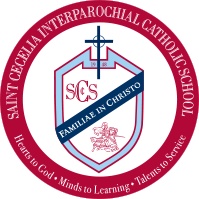The Many Benefits of Extracurriculars for Middle School Students
Middle school can be a challenging time for many students as they navigate through academic responsibilities, social pressures, and personal growth. In the midst of all this, extracurricular activities may seem like a secondary priority. However, these activities can actually play a crucial role in a middle schooler’s development, preparation for high school, and overall well-being.
From sports teams to drama clubs, chess clubs to debate teams, extracurriculars offer a variety of opportunities for students to explore current interests, learn new skills, and build important life skills. Cecelia School explains the benefits of extracurriculars for middle school students and why they should not be overlooked.
Related Post: Education for All: Step Up For Students Now Offers Scholarships Regardless of Income
Broadening Learning Opportunities
Extracurricular activities offer middle school students the unique opportunity to expand their horizons beyond their classroom walls. While academic subjects like mathematics and English offer critical foundational knowledge, extracurriculars introduce students to a wide array of practical, cultural, and creative pursuits.
A student could discover a knack for painting in an art club, ignite a passion for global politics in a model UN, or even find their rhythm in a dance group. Each experience broadens their perspective, enabling them to understand the world around them in richer, more complex ways.
Moreover, these activities provide hands-on learning experiences that can complement academic learning. For instance, a science club member might get a chance to apply what they’ve learned in class during a robotics project. These real-world applications can make lessons more memorable and meaningful, turning abstract concepts into tangible realities.
Enhancing Social Skills
One of the most valuable benefits of extracurriculars lies in the chance to develop robust social skills. In a club or on a team, students interact with peers who share similar interests. This setting naturally promotes teamwork, collaboration, and communication as they work towards common goals or projects. This can be especially beneficial for very introverted students, providing a comfortable environment to socialize and make new friends.
Additionally, students can learn valuable lessons in leadership and conflict resolution. Whether they’re leading a team to victory in a sports match, mediating a dispute in a debate club, or coordinating a play in a drama group, these experiences can equip them with the skills to navigate complex social situations.
Building Confidence and Self-esteem
Engaging in extracurricular activities can have a profound impact on a middle school student’s self-confidence and self-esteem. As they tackle new challenges, learn new skills, and make progress in their chosen activities, students naturally gain a sense of accomplishment and a growing belief in their abilities. Whether they’re mastering a difficult piece in an orchestra, scoring a goal in soccer, or delivering a powerful speech in a debate, these successes can boost their confidence in ways that extend far beyond the specific activity.
Even when they face setbacks or failures – which are inevitable in any endeavor – the support and encouragement they receive from peers and mentors can help them learn to persevere and develop resilience. The opportunity to learn that failure is not the end but rather a stepping stone to improvement is a valuable lesson that can enhance self-esteem.
Fostering a Balanced Life
Participation in extracurricular activities can help middle school students foster a balanced life, nurturing their emotional and physical well-being alongside their academic pursuits. Juggling schoolwork with a sports practice or a drama rehearsal teaches students time management skills, a valuable trait that will serve them well as they move toward high school. The inherent fun and enjoyment in these activities provide a necessary counterpoint to academic pressures, acting as a stress reliever.
Physical activities like sports or dance don’t just improve physical health but also boost mental well-being by improving mood and energy levels. Meanwhile, activities like art, drama, or music allow students a creative outlet for self-expression, helping them process their emotions and experiences in healthy, constructive ways.
This well-rounded approach to personal development nurtures not just a more knowledgeable student but a happier, healthier, and more balanced individual.
St. Cecelia Interparochial Catholic School
To learn more about academics or enrollment, please visit our website or contact us online.

About Us
St. Cecelia Interparochial Catholic School (SCS) offers an academically challenging and globally minded interdisciplinary education to children in PreK-3 through 8th grade.
Contact Us
1350 Court Street
Clearwater, FL 33756
Phone: 727-461-1200
Fax: 727-446-9140
Admissions: 727-461-1207
Extended Day: 727-385-4851
(3:30-6:00pm)
Quick Links
© Copyright 2015 Saint Cecelia Interparochial Catholic School. Website designed and developed by BayshoreSolutions.

